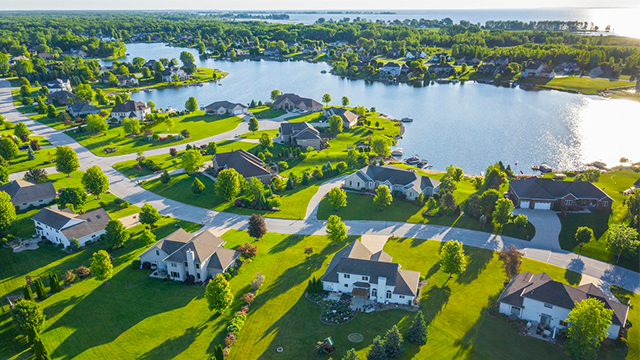Alternative to Case-Shiller Index Shows Home Prices Across U.S. Continue to Rise at Near-record Rates
By Paul Owers | 10/26/2021
Tags: Executive-Education | Finance | Housing-Ranking | Press-Releases | Real-EstateCategories: Faculty/Staff | Initiatives | Research
FAU Economist: Local Markets Can’t Sustain Swift Increases

Rising premiums in many of the nation’s most overvalued metropolitan areas suggest that homebuying remains red hot even as signs point to a looming price correction, according to a new ranking of the 100 largest U.S. housing markets by researchers at Florida Atlantic University and Florida International University.
Prices that already are too high based on past pricing trends continue to surge upward at near-historic rates, threatening to leave recent buyers in a bind once the market settles.
As of Sept. 30, Boise, Idaho, remains the nation’s most overvalued, with buyers paying 81.28 percent above the long-term pricing trend for that market. In No. 2 Austin, Texas, buyers are paying 56.55 percent more than they should. The full ranking can be viewed here.
Other metropolitan areas in the Top 10 saw noticeable jumps in their premiums from August:
- No. 10 Atlanta increased by 244 basis points to 42.45 percent overvalued
- No. 9 Las Vegas rose 207 basis points to 45.46 percent overvalued
- No. 5 Phoenix jumped 189 basis points to 46.99 percent overvalued
“These results are contrary to the reports that housing markets are slowing down across the country,” said Ken H. Johnson, Ph.D., an economist for FAU Executive Education within the College of Business. “Nearly every metro in the study saw an increase in its premium currently being paid. This indicates that prices are continuing to rise and rise faster than what can be sustained in local markets.”
The consistent increases in home prices are being driven by strong demand from near-record-low mortgage rates and a shortage of homes for sale. A small uptick in mortgage rates recently also could be causing some buyers to enter the market because they don’t believe rates will fall any further, according to Johnson.
“It feels like we are at an inflection point,” Eli Beracha, Ph.D., of FIU’s Hollo School of Real Estate. “Exactly when we will reach the current peak in the housing market is hard to tell. It might be wise for many people to consider renting and reinvesting the money they would otherwise have spent on ownership in the nation’s most overpriced markets. You don’t want to be among the last to buy at your local market’s peak because it may be a long time before you can resell your property for a substantial return.”
Of the 100 markets ranked, 96 are overpriced, based on their historic prices. In this latest ranking, Atlanta entered the Top 10, while Phoenix jumped one spot to fifth.
In only four markets (New York; Baltimore; Virginia Beach, Virginia; and Honolulu, Hawaii) are homes selling at a discount. Honolulu remains the best place to find a deal, with homes selling for an average discount of 2.6 percent.
Among the nine Florida markets on the list, No. 16 Tampa is the most overvalued at 35.88 percent. The monthly premium rose in No. 68 Miami, which also includes Palm Beach and Broward counties, but the state’s largest metro also remained its least overvalued at 16.08 percent.
Johnson and Beracha’s monthly ranking of U.S. housing markets incorporates average or expected price changes, similar to the popular S&P CoreLogic Case-Shiller home price index. In addition, Johnson and Beracha’s ranking provides an estimate of how much a market’s housing stock is over- or undervalued, relative to its historic pricing.
The researchers use publicly available data from the online real estate portal Zillow or other providers. The data, which extends from January 1996 through the end of September, covers single-family homes, townhomes, condominiums and co-ops.
-FAU-